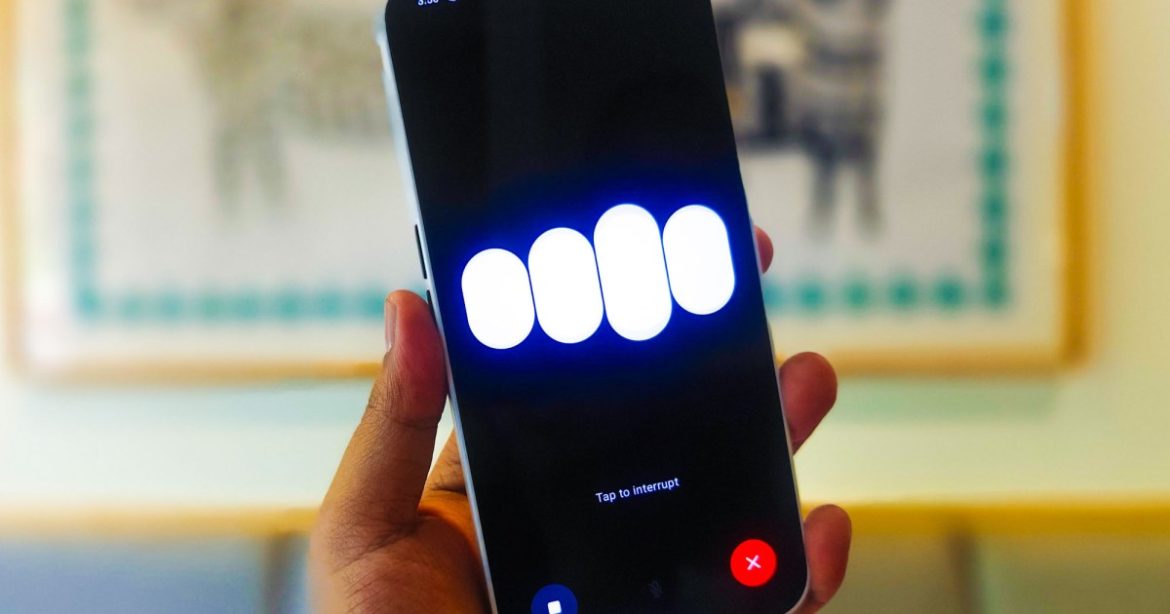Advanced Voice Mode is a new feature for ChatGPT that enables users to hold real-time, humanlike conversations with the AI chatbot without the need for a text-based prompt window or back-and-forth audio. It was released in late July to select Plus subscribers after being first demoed at OpenAI’s Spring Update event.
When will I get Advanced Mode?
Last week, OpenAI finally released its highly anticipated Advanced Voice feature to a select few of its ChatGPT-Plus subscribers. So, some people are already out there using it. We don’t know how large this initial rollout is, however, or how quickly OpenAI is inviting new members.
-
Is AI already plateauing? New reporting suggests GPT-5 may be in trouble
-
ChatGPT: the latest news and updates on the AI chatbot that changed everything
-
ChatGPT Search is here to battle both Google and Perplexity
The company promises to roll it out to more users in the coming weeks, and to all Plus subscribers by this fall, although many users remain impatient to try it for themselves. So, the simple answer is that you’ll get access to it sometime between now and the fall, barring any further delays. “Fall” can be vague, but if we don’t see a full rollout to all users by December, that would constitute a delay.
Either way, you’ll know you have access when you receive an email inviting you to give it a try. You’ll also see a notification when you open the ChatGPT app.
What do I need to run Advanced Voice Mode on my phone?

In addition to a Plus subscription, users will need an Android handset running app version 1.2024.206 or later, or an iPhone using iOS 16.4 or later and app version 1.2024.206 or later. Unfortunately, just having the right equipment isn’t enough to guarantee you a spot in the alpha release phase. What’s more, OpenAI has not released any details as to how or why it chooses the users it does.
If you do win the alpha release lottery and are selected, OpenAI will send you an email about it. You’ll also see a tooltip in the bottom-right corner of the ChatGPT mobile app that allows you to select the new feature.
Is OpenAI going to use my conversations to train its model?
Of course. Throughout the alpha release phase, OpenAI plans to leverage audio from conversations with advanced Voice Mode to train its models, assuming you haven’t yet turned off the app’s dat- sharing option.
Doing so is actually quite simple. On your mobile app, go to the Data Controls tab in your Settings menu and deselect Improve voice for everyone.
How often and how much can I use Advanced Voice Mode?
According to OpenAI, both the inputs and outputs for Advanced Voice come with daily usage limits, however, there’s no specifics on exactly how long those are and “precise limits are subject to change.” That said, user Himels Tech has already posted a video of themselves conversing with the AI for the better part of 10 minutes.
The AI will prompt users when they have 3 minutes of chatting left, before ending the conversation and sending the user back to the standard voice interface.
What can I, and can’t I, do with Advanced Voice Mode?
Khan!!!!!! pic.twitter.com/xQ8NdEojSX
— Ethan Sutin (@EthanSutin) July 30, 2024
Advanced Voice Mode is, at its core, simply a new way to interact with the same GPT-4o large language model that people already use for their text-based queries. So, in short, most anything you can do with ChatGPT, you can do with Advanced Voice, but with funny voices. From beatboxing to storytelling to counting really, really fast, early users are already putting the new feature through its paces.
There are safety guardrails and feature limits to what users can ask of the new mode, however. For one, users can’t use Advanced Voice to make new memories, nor can they use custom instructions or access GPTs using it. And while the AI will remember previous Advanced Voice conversations and be able to recall details of those talks, it cannot yet access previous chats conducted through the text prompt or the standard voice mode.
What’s more, Advanced Voice will not sing, no matter how you ask. Per the company, “to respect creators’ rights, we’ve put in place several mitigations, including new filters, to prevent advanced Voice Mode from responding with musical content including singing.”




